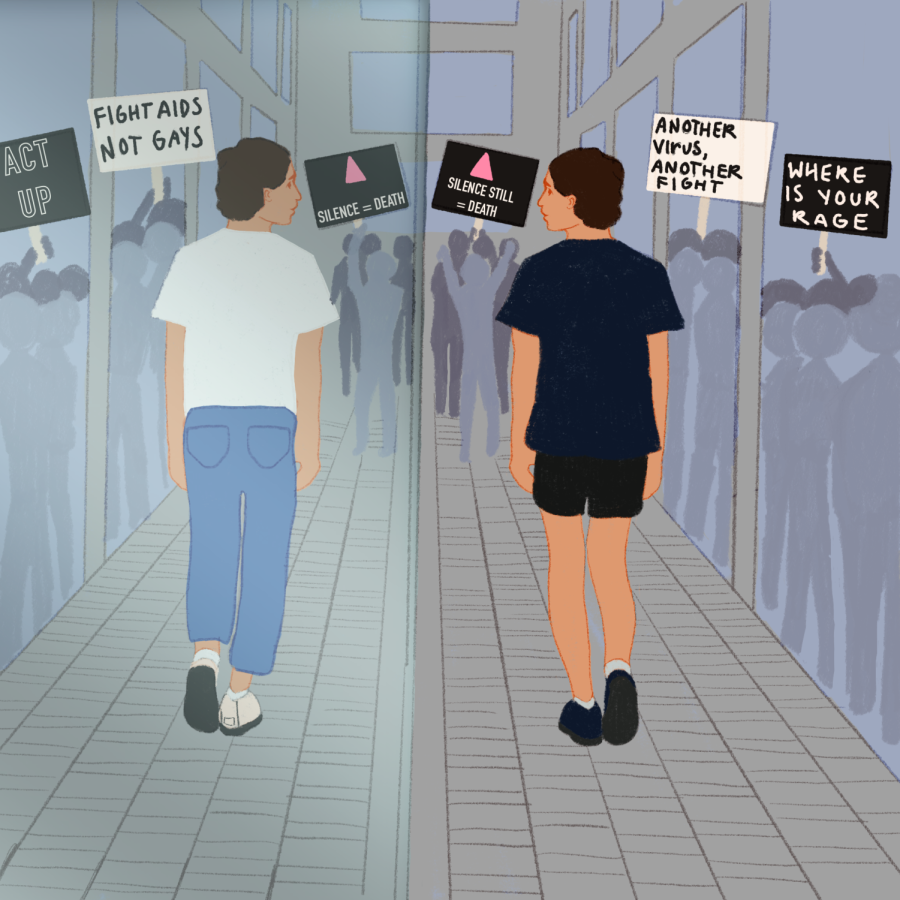Could Monkeypox become the new AIDS crisis?
September 20, 2022
You probably know the song “Running Up That Hill” by Kate Bush, especially if you have seen the Netflix hit “Stranger Things,” but did you know it was released the same year the United States saw an 89% increase in AIDS cases?
1985 was a tumultuous time in America, with the emerging AIDS epidemic being grossly mishandled by the Reagan administration. In line with his preference for smaller governments, President Reagan reduced funding for the Centers for Disease Control and Prevention (CDC) in 1983. Although the first cases of HIV were reported in 1981, Reagan failed to publicly mention AIDS until 1985. At this point, HIV was gaining a foothold in America and over 3,500 people had already died from AIDS. Years of silence and inaction from the administration had created a public health crisis — one that continues to affect everyday Americans even today.
Although much has changed since 1985 in terms of politics and public health, we seem to be reliving the events that led up to the AIDS crisis as Monkeypox cases continue to rise. Just a quick scroll through the CDC’s public Twitter page reveals comments such as “No one is getting monkeypox. Unless you have gay unprotected sex.” Unfortunately, comments like these are not uncommon, indicating that the virus might become known as the new “gay plague” by the public, following in the footsteps of HIV.
Currently, statistics show that the majority of Monkeypox cases are in men who have sex with men (MSM). This is very similar to the original outbreak of HIV, which found a niche in the MSM community before it reached other populations. However, HIV, like Monkeypox, can infect anyone who comes into contact with the virus. To put things into perspective, the majority of transmission of HIV in Sub-Saharan Africa is occurring through heterosexual sex.
Essentially, Monkeypox has also found a niche within the MSM community, but there is no reason to doubt that the virus will spread beyond that population. MSM individuals typically engage in higher-risk health behaviors, which makes this group vulnerable to higher frequencies of infection. However, Monkeypox does not care about your sexual orientation or gender, as its primary objective is to spread and replicate, not discriminate.
Moreover, an important distinction is to be made between these two viruses: HIV is strictly spread through bodily fluids such as blood, semen and anal or vaginal secretions, while Monkeypox can be transmitted through fomites. The term fomite refers to any inanimate object, such as eating utensils or fabrics, that can spread infection. Further transmission is driven by prolonged direct contact with an infected individual, especially during intimate activities such as kissing, hugging and having sex.
While HIV and Monkeypox have their similarities, they are two completely different pathogens. HIV remains stigmatized to this day, and the mistakes made with HIV cannot be repeated with Monkeypox. It is imperative that we all take precautions to stop the spread of the virus and decrease unnecessary stigma. Otherwise, we face yet another preventable public health crisis that affects us all.













